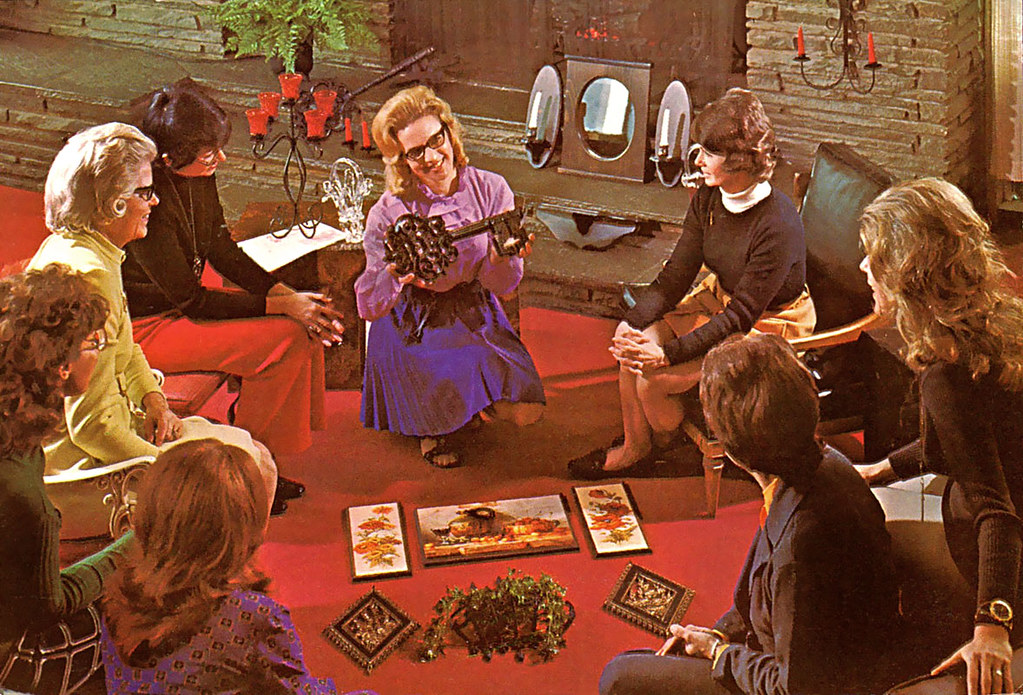Practicing magick can often be a deeply personal journey, where solitude becomes a cherished companion. Yet, even the most solitary witches might find themselves longing for the camaraderie and shared energy that comes from gathering with like-minded practitioners, especially during significant sabbats or new moons. I too cherish my own space for magickal practice but occasionally, the allure of community calls, especially when my local women’s circle meets at a nearby metaphysical shop to celebrate the new moon.
The Challenge of Finding Genuine Magickal Groups Easily
In an ideal world, finding a group would be as easy as a click of a button. Unfortunately, reliable resources can be hard to come by. I remember a website I used frequently to find vetted groups in the US, but sadly, it’s no longer available. It’s a stark reminder of the fragility of online resources and the constant need to adapt and seek new ways to connect.
For those fortunate enough to have access, local metaphysical shops can be excellent hubs for discovering groups. These places often serve as the heartbeat of the local magickal community, hosting events and gatherings that can lead to meaningful connections.
The Digital Quest for Connection
If local options are scarce, the digital world offers a plethora of possibilities. Platforms like Facebook can surprisingly unearth local or virtual groups that resonate with your beliefs, particularly if you live in a more conservative area. However, the convenience of social media comes with its pitfalls, emphasizing the importance of vigilance to avoid deceitful groups that could turn a sacred practice into a regrettable experience.
Recognizing Red Flags in Magickal Groups
When venturing into the realm of magickal communities, whether you’re a seasoned witch or a novice, the allure of joining a coven or group brings both excitement and potential risks. It’s essential to approach these communities with a sense of cautious optimism, recognizing that while many groups offer a genuine sense of belonging and shared practice, others might not have your best interests at heart.
1. Limited Time Offers
The Pressure to Commit Quickly
One significant warning sign is when a group presents itself as a limited-time opportunity. This tactic is often designed to create a sense of urgency, pushing you to make a hasty decision without proper consideration or research. Genuine magickal groups understand that joining a coven or circle is a significant commitment and that potential members should take the time they need to decide.
Understanding Group Longevity
It’s crucial to differentiate between genuinely transient groups that meet for specific purposes, like celebrating sabbats, and those using scarcity as a manipulative tool. Temporary groups can offer wonderful opportunities for celebration and learning but should not pressure you to make quick decisions about long-term commitments.
2. Recruitment Schemes
The Pitfalls of Membership Recruitment
Another red flag to watch for is a group that places undue emphasis on recruiting new members. While it’s natural for groups to grow and welcome new members, a focus on numbers over practice can indicate that the group’s priorities are misaligned with the true essence of witchcraft, which is personal spiritual growth and the exploration of magick.
Distinguishing Healthy Growth from MLM Tactics
If the group’s main activity revolves around recruitment rather than magickal practice, rituals, and learning, it’s a sign that the group might be more interested in benefiting from its numbers rather than fostering a nurturing magickal environment. Authentic groups will focus on deepening their existing members’ practices and knowledge rather than constantly seeking new recruits.

3. Isolating Its Members
The Dangers of Isolation
A particularly concerning red flag is a group that requires you to limit your interactions to only group members, potentially cutting off family and friends. Such isolation tactics are often used by cults as a means to control members by removing external support networks and perspectives.
Respecting Personal Relationships
While it’s common to experience changes in relationships when you embrace your magickal path—sometimes losing touch with those who don’t understand or accept your beliefs—a genuine group will support your personal choices and not dictate them. Your freedom to maintain or sever ties should always be yours alone.
4. Being Unable to Leave
The Importance of Exit Freedom
A group that tells you that leaving is not an option once you join is a major red flag. This goes against the fundamental witchcraft principle of free will. A healthy magickal community should always allow members to leave freely without fear of retribution or guilt.
What to Do If You Feel Trapped
If you find yourself in a situation where leaving a group is discouraged or made difficult, it’s important to seek support. Sometimes, simply having an external perspective can provide the strength needed to make the right decision for your personal wellbeing.
5. Financial Demands
Recognizing Reasonable Expenses
It’s not uncommon for groups to have fees associated with membership—rent for meeting spaces, costs of materials, etc. However, these should be transparent and reasonable. A clear understanding of where your money goes can help you feel more comfortable with these expenses.
Spotting Exploitative Financial Practices
Be wary of groups that require large financial contributions with little to no explanation or visible benefits. Magickal practice should not be a financial burden, and excessive fees can be a tactic used by unscrupulous leaders to exploit members financially.
6. The Requirement of Intimacy
The Misuse of Sexual Energy in Magick
One of the most egregious red flags in any group—magickal or otherwise—is the requirement of sexual activity as part of its practices. Magick, particularly sex magick, is a deeply personal and consensual practice that should only occur between willing participants who are fully informed and comfortable with the proceedings.
Consent and Personal Autonomy
It is imperative to distinguish between groups that respect personal boundaries and those that use the guise of ritual to breach consent. If a group mandates participation in intimate acts, it is not only unethical but can also be psychologically and physically harmful. True magickal practice should empower and liberate, not coerce.
7. Age Restrictions
Questioning the Motive Behind Age Limits
While it’s reasonable for groups to set a minimum age limit for participation due to legal and ethical considerations, a maximum age limit is both unusual and concerning. Such restrictions often reflect a focus on superficial attributes or other questionable motives rather than the spiritual and magickal growth of its members.
Valuing Wisdom and Experience
In magick, wisdom and experience are treasures that practitioners often gain with age. A group that excludes individuals based on age is likely missing out on valuable perspectives and skills that can enrich the practice for all members.

8. Leadership Quality
The Importance of Trustworthy Leadership
Leadership in any magickal group plays a critical role in setting the tone and guiding the practice. Leaders who impose unreasonable rules or fail to provide transparency about their objectives should be approached with caution. It’s essential to research and understand the background and reputation of the leaders before committing to their group.
Signs of Questionable Leadership
Be alert to leaders who avoid questions about their practices or who react defensively to inquiries. A leader’s unwillingness to engage in open dialogue about group practices or their own magickal journey can be a sign of hidden agendas or a lack of true knowledge and integrity.
9. Unbelievable Claims
Assessing the Validity of Magickal Claims
In an age where information is abundant yet frequently distorted, encountering individuals or groups boasting of extraordinary magickal powers or hereditary lineage is common. It’s important to approach such claims with a healthy dose of skepticism and demand evidence or testimonials that support these assertions.
The Risk of Fabricated Histories
Many claim a grandiose magickal heritage or unique powers to attract attention or assert authority. Always seek proof or corroboration of such claims. A genuine practitioner will be honest about their capabilities and limitations, focusing more on sharing knowledge than boasting about their prowess.
10. Something Just Feels Off
Listening to Your Inner Voice
Often, the most reliable indicator of whether a group is right for you comes from your own intuition. If something feels off, or if interactions within the group stir discomfort, it’s worth paying attention to these internal alarms. Trusting your gut can save you from negative experiences that might impact your personal and magickal wellbeing.
When Doubt Arises, Take Action
If your instincts suggest that something is amiss, it’s advisable to step back and reassess your involvement. Seeking advice from trusted fellow practitioners or taking time to reflect can provide clarity and prevent potential harm.
Joining a magickal group can significantly enhance your practice, providing a sense of community and shared energy that enriches your spiritual journey. However, it’s crucial to approach this step with careful consideration, keeping an eye out for the red flags discussed. By remaining vigilant and trusting your intuition, you can find a group that truly resonates with your magickal path and contributes positively to your growth as a practitioner.















